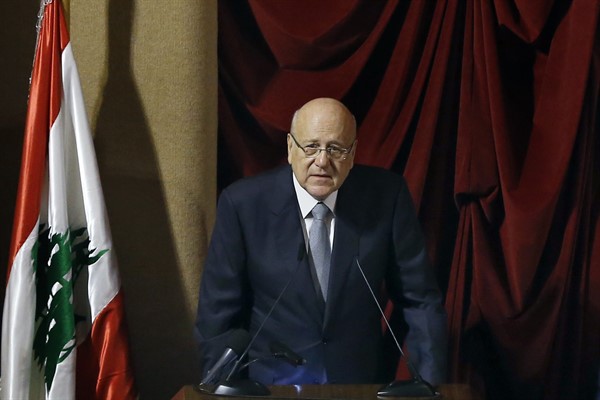BEIRUT—After 13 months of political paralysis, Lebanon finally has a new government, the first since former Prime Minister Hassan Diab resigned along with his entire Cabinet after the Beirut port explosion of August 2020, which killed over 200 and devastated the capital city.
The new administration is led by Lebanon’s richest man, billionaire Najib Mikati, who previously served as prime minister from 2011 to 2014, and for several months on an interim basis in 2005. He was sworn in earlier this month, and his government received a vote of confidence in Parliament on Monday.
His government is technocratic, its ministers supposedly nonpartisan specialists—although Cabinet portfolios have still been allocated under the country’s longstanding confessional system, whereby the country’s various religious groups share power. Mikati will have his work cut out for him, as Lebanon faces an economic depression described by the World Bank as one of the world’s worst since the 19th century. Indeed, the country could soon become a failed state. To some, it already is.

